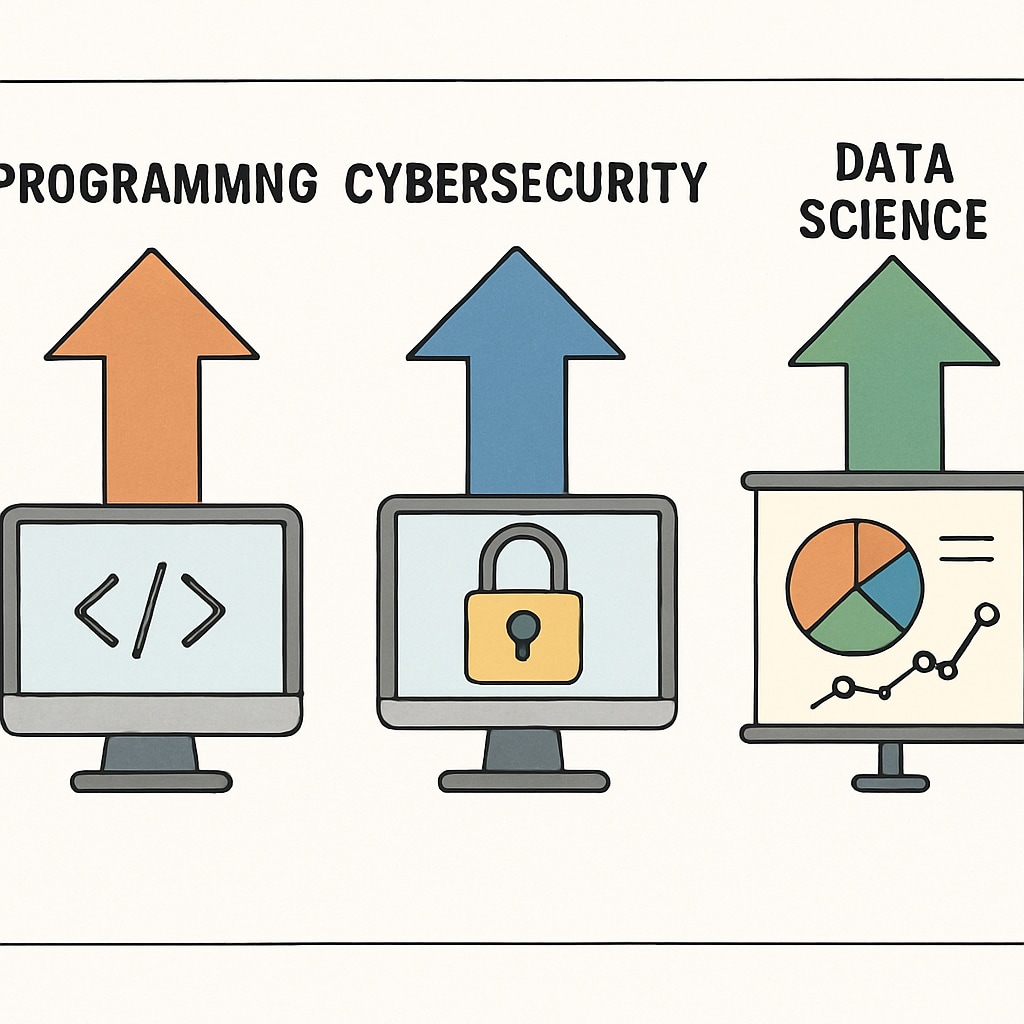Choosing the right career path in IT can feel overwhelming for university freshmen, especially those with no prior experience. With countless majors like programming, cybersecurity, and data science available, making an informed decision is crucial. This article will provide actionable advice on career planning, IT majors, and university choices, ensuring students can confidently navigate their academic and professional journey.
Understanding Your Strengths and Interests
Before diving into specific IT majors, it’s important to understand your personal strengths and interests. For example, if you enjoy problem-solving and logical thinking, programming might be a great fit. On the other hand, if you’re detail-oriented and interested in protecting digital assets, cybersecurity could be your ideal choice.
- Take personality or aptitude tests to identify areas where you excel.
- Consider hobbies or activities that align with IT disciplines, such as coding or gaming.
- Seek advice from mentors, professors, or career counselors to gain insights into your potential.

Exploring IT Majors and Specializations
The IT field offers diverse career opportunities, ranging from software development to artificial intelligence. Below are some popular IT majors that freshmen can consider:
- Computer Science: A broad field covering programming, algorithms, and software development.
- Cybersecurity: Focuses on protecting systems and networks from digital threats.
- Data Science: Involves analyzing large datasets to extract insights and support decision-making.
- Information Systems: Concentrates on managing IT solutions within organizations.
- Artificial Intelligence and Machine Learning: Explores how machines can learn and adapt to perform tasks autonomously.
Each specialization has unique skill requirements and career prospects. For example, computer science graduates often work as software engineers, while machine learning specialists may focus on creating intelligent systems.

Industry Trends and Future Opportunities
Understanding industry trends can help freshmen choose an IT major that aligns with future opportunities. For instance, the demand for cybersecurity professionals is expected to grow significantly due to increasing cyber threats. Similarly, careers in artificial intelligence are booming as businesses integrate AI into various sectors.
According to the Britannica overview on AI, artificial intelligence is transforming industries like healthcare, finance, and transportation. Meanwhile, resources like Wikipedia’s guide on cybersecurity highlight the expanding scope of digital security roles.
Tips for Freshmen Without Experience
Starting with no prior experience in IT can be intimidating, but it shouldn’t hold you back. Here are some practical steps to build foundational skills and gain confidence:
- Online Courses: Platforms like Coursera or Udemy offer beginner-friendly courses in programming, data analysis, and more.
- Internships: Look for entry-level internships or volunteer opportunities to gain hands-on experience.
- Networking: Join university clubs, attend tech meetups, and connect with professionals on LinkedIn.
- Personal Projects: Start small coding or data analysis projects to practice skills and showcase them in your portfolio.
By taking these steps, freshmen can gradually build expertise and stand out in the competitive IT job market.
Conclusion: Choosing Your Ideal IT Path
Career planning in IT requires a thoughtful approach. Freshmen should evaluate their interests, explore various majors, and stay informed about industry trends. Whether you choose cybersecurity, programming, or data science, the key is to remain adaptable and committed to learning.
Remember, your university years are an opportunity to experiment and discover your passions. By leveraging resources and seeking guidance, you can confidently embark on a fulfilling career in the dynamic field of IT.
Readability guidance: This article uses concise paragraphs, includes lists to summarize points, and strategically incorporates transition words like “for example,” “as a result,” and “in addition.” Additionally, passive voice is limited to ensure clarity and engagement.


